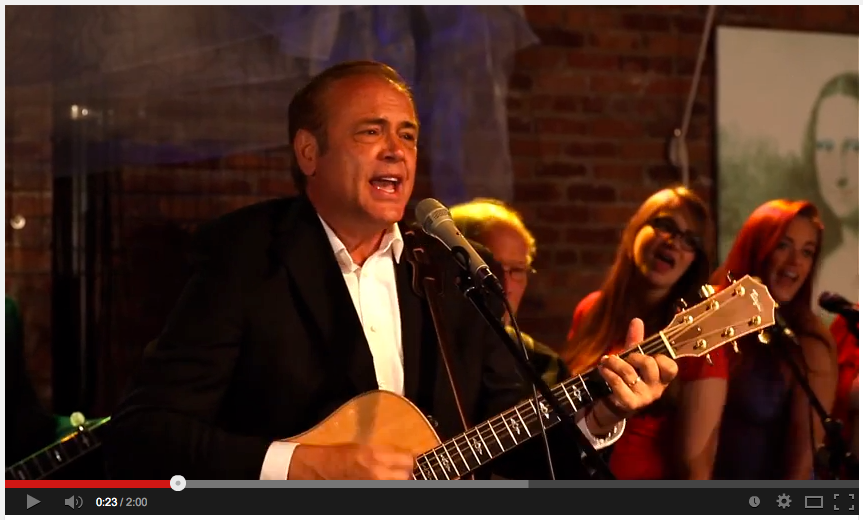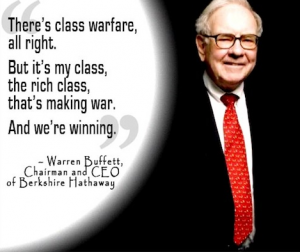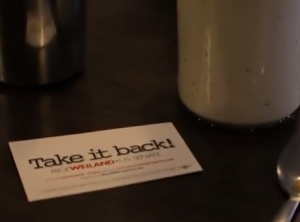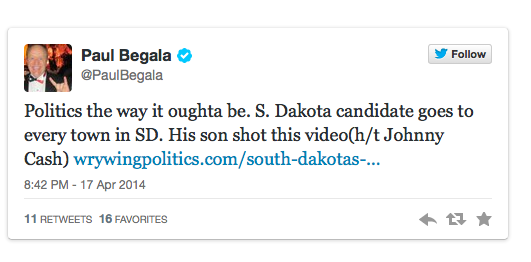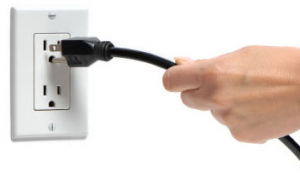 President Obama and his supporters have struggled mightily to market the byzantine Affordable Care Act (ACA) reforms to the public. But by uttering three simple words – “Medicare for all” – U.S. Senate candidate Rick Weiland in neighboring South Dakota is showing President Obama how it should have been done way back in 2008.
President Obama and his supporters have struggled mightily to market the byzantine Affordable Care Act (ACA) reforms to the public. But by uttering three simple words – “Medicare for all” – U.S. Senate candidate Rick Weiland in neighboring South Dakota is showing President Obama how it should have been done way back in 2008.
The “Medicare For All” approach that Weiland proposed last week is much easier to sell than the ACA. The Associated Press reports:
Weiland has proposed that citizens of any age be allowed to buy into Medicare, which now is generally open only to people 65 and older, as an alternative to private health insurance plans.
“People understand Medicare,” Weiland told The Argus Leader. “It works, it’s efficient, and all this other stuff that they’re having now to focus on is extremely complicated, and they don’t understand it.”
Clear. Concise. Compelling. The same can’t be said about most ACA-related rhetoric.
Obama Framed Up The Wrong Comparison
In the book Predictably Irrational, Dan Ariely, a psychology and behavioral economics professor, examines how we make choices. One of the phenomena Ariely describes is research showing that humans tend to judge their environment in relation to things that are comparable.
For instance, let’s say you give newlyweds the choice of three honeymoon options – Paris with free breakfast included, Rome with free breakfast included, and Rome with no breakfast included. Because the two Rome options are comparable, most will gravitate away from the single Paris option. We are attracted to comparability.
The Comparability Obama Offered. With that research in mind, consider what President Obama and congressional Democrats did on health reform in 2008. He believed that Americans needed to have a system that was comparable with what they were familiar with, our American system of private insurers and private health care providers. So, from 2008 to 2010, Obama framed the health care reform debate as the choice of two comparable things:
Private-centered status quo model. The pre-2010 status quo system of private insurers and private health care providers.
vs.
Private-centered model, coupled with reforms.. The status quo system of private insurers and health care providers coupled with complicated reforms.
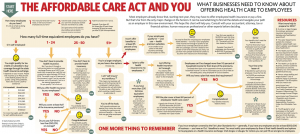 The ACA reforms were enormously complex, mostly because the underlying pre-2010 status quo health care system was so decentralized and entangled. Obama’s reforms were narrowly enacted in 2010, primarily because the status quo was so overwhelmingly unpopular.
The ACA reforms were enormously complex, mostly because the underlying pre-2010 status quo health care system was so decentralized and entangled. Obama’s reforms were narrowly enacted in 2010, primarily because the status quo was so overwhelmingly unpopular.
The Comparability Obama Should Have Offered. But what if Obama had framed up a different kind of comparable choice for the American people? While it’s true that Americans are familiar with private health insurance, they are also familiar with Medicare. So why didn’t Obama frame the debate up as a choice between these two comparable things:
Medicare for some. A status quo system where Medicare is available only to seniors.
vs.
Medicare for all. A new system where Medicare is available to everyone who wants it.
The Political Advantages of Medicare for All
Obama didn’t go with Medicare For All, presumably because he was afraid that Republicans would castigate it as “government run health care” and “socialism.”
As it turned out, the Republican spin machine was determined to characterize anything Obama proposed as “government run health care” and “socialism.” After all, it uses those terms to describe the ACA, which is absurd, because the ACA relies on private insurers and private caregivers without permitting a single government-run option in the mix.
President Obama was never going to avoid this “government run health care” political attack , so there was no good reason to allow it to shape the proposal.
Moreover, Medicare happens to be “government run health care” that Americans really like. About 56 percent of Medicare recipients give it a rating of 9 or 10 on a 0-10 scale, while only about 40 percent of Americans enrolled in private health insurance gave their plans such a high rating. An amazing 70% of Medicare recipients say they always get access to needed health care, while only 51% of people with private insurance say that.
A 2007 Associated Press/Yahoo survey showed that about two-thirds of Americans (65%) agreed that “the United States should adopt a universal health insurance program in which everyone is covered under a program like Medicare that is run by the government and financed by taxpayers.”
So demonizing the specific (“Medicare”) would have been much more politically difficult for Republicans than demonizing the abstract (“government run health care” or “socialism”).
Could Obama have passed a “Medicare For All” bill? Expanding the nation’s most popular health plan was certainly possible. After all, knowing that two-thirds of Americans support Medicare for All, what politician of either party would want to take to the stump arguing:
“For your parents, grandparents, neighbors, and friends, Medicare is terrific. I’ll fight to the death to protect it for them. But for the rest of you, I am blocking you from accessing Medicare. Medicare for YOU would be radical socialism that would lead to horrific health problems.”
Huh? That would be a head-spinning political argument to sell.
Still, because the insurance lobby is so strong, maybe Congress would have rejected Medicare for All, against the wishes of two-thirds of their constituents. But if Obama had made Medicare for All the starting point for the debate, the compromise at the end of the process may have been more progressive, such as a private-dominated marketplace with a Medicare-like public option impacting market competition.
Incumbents who voted for the ACA in 2010 need to defend that confusing law in the 2014 mid-term elections, and the ACA is certainly a vast improvement over the pre-ACA status quo that Republicans have effectively embraced by not offering alternatives for reducing the rate of uninsurance and outlawing preexisting condition bans. The ACA, for all its warts, is the most significant health care reform since the creation of Medicare.
But even in a neon red state like South Dakota, challengers like Mr. Weiland are wise to adopt the clear, concise and compelling “Medicare for All” rallying call, just as Obama and congressional Democrats should have done back in 2008.
Loveland
Note: This post was featured in MinnPost’s Blog Cabin.
 Here’s how: About 18% of South Dakotans who currently say they will vote for former Republican U.S. Senator Larry Pressler are making it impossible for second place Democrat Rick Weiland to get enough of the anti-Rounds votes to defeat Rounds. Even though polls consistently show Pressler is running a distant third, some swing voters have been attracted to Pressler, in part because he has promoted himself as the only member of Congress who was cleared during the 1978 ABSCAM sting operation. In the minds of many Pressler supporters, their vote for Pressler is a vote for a cleaner brand of politics.
Here’s how: About 18% of South Dakotans who currently say they will vote for former Republican U.S. Senator Larry Pressler are making it impossible for second place Democrat Rick Weiland to get enough of the anti-Rounds votes to defeat Rounds. Even though polls consistently show Pressler is running a distant third, some swing voters have been attracted to Pressler, in part because he has promoted himself as the only member of Congress who was cleared during the 1978 ABSCAM sting operation. In the minds of many Pressler supporters, their vote for Pressler is a vote for a cleaner brand of politics.
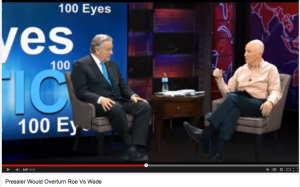
 SEGMENTATION. First, there’s simple electoral math. There are three prominent conservative GOP officeholders on the November ballot — a former GOP state legislator with Tea Party support (Gordon Howie), former GOP Governor (Mike Rounds) and former GOP U.S. Senator (Larry Pressler). That divides South Dakota conservatives in three, which is thrice as nice for the lone Democrat on the ballot.
SEGMENTATION. First, there’s simple electoral math. There are three prominent conservative GOP officeholders on the November ballot — a former GOP state legislator with Tea Party support (Gordon Howie), former GOP Governor (Mike Rounds) and former GOP U.S. Senator (Larry Pressler). That divides South Dakota conservatives in three, which is thrice as nice for the lone Democrat on the ballot.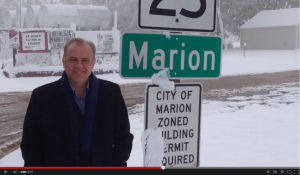


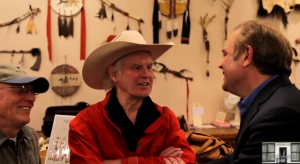 Meanwhile, Rounds’ Democratic opponent Rick Weiland has been campaigning the old fashioned way. He is staying grounded, traveling the dusty byways in a minivan. Weiland is the first candidate in South Dakota history to campaign face-to-face in all of the state’s 311 towns. A couple of them are not metropolises.
Meanwhile, Rounds’ Democratic opponent Rick Weiland has been campaigning the old fashioned way. He is staying grounded, traveling the dusty byways in a minivan. Weiland is the first candidate in South Dakota history to campaign face-to-face in all of the state’s 311 towns. A couple of them are not metropolises.